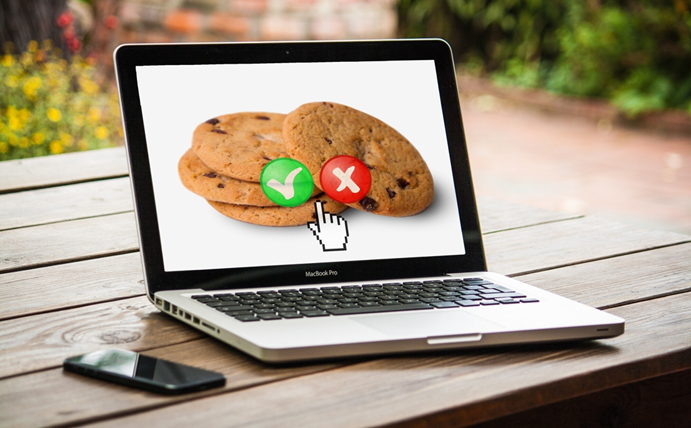A recent survey in the United Kingdom showed that consumers used home internet more since the start of the pandemic.
Almost 60% of users experienced slow speeds and reliability issues with their connections. Sometimes, this is due to the service provider.
Other times, it’s a user issue. It’s hard to pinpoint the exact problem, so people will start with two phases: clear your cache and clear your cookies.
The average internet user doesn’t know what a cache or cookie is. They certainly don’t know the differences between cache vs. cookies.
These two things form the basis of the website browsing experience. Do you want to up your level of internet knowledge?
Get ready because you’re about to learn what the differences are between cookies vs. cache and why they matter if you have a slow internet connection.
A Brief Guide on How the Internet Works
You have to know how the internet works to fully understand what cookies and caches are.
The internet was created in the 1960s thanks to the Advanced Research Projects Agency Network (ARPANET). This allowed computers to send and receive data on the same network.
The technology advanced through the 1970s with the creation of Transmission Control Protocol and Internet Protocol (TCP/IP). This set a standard of communications between computers.
The TCP part takes data and divides it into smaller packets. These get transmitted to the destination according to the IP. The IP is similar to a phone number that gets assigned to every device on the internet.
In the TCP/IP standard, a client (end-user) requests information. This gets sent to a server that serves information back to the client.
In the 1990s, Tim Berners Lee created the World Wide Web. This introduced web browsers that contained hyperlinks to other web pages.
The purpose of web browsers is to access content on the internet. Web browsers send requests to servers. Servers transmit images, videos, and text in data packets.
The browsers take the packets and put them back together in HTML format.
What Is a Browser Cache?
If you visited a website with a lot of images and video content, you know that it can take forever to load. You don’t want to wait a long time for a website to load every time you visit it.
A browser cache helps speed up that experience. A cache is like a memory bank. It stores data so the next time you visit the website, it loads from the cache.
That makes loading the website faster. It also requires less data to be transmitted. That could save money on data plans that have limits and restrictions.
What Is a Browser Cookie?
Cookies are data imprints. These are small files that contain information about your browsing history, type of device used to visit a website, IP address, search history, data entered into forms, and more.
These small files get created when you visit a website.
Brower cookies get used to personalize the internet browsing experience. They can be creepy at the same time.
Have you ever visited a website only to see ads for that website several minutes later somewhere else on the internet? That’s because the website placed a tracking cookie in your browser.
Cookies are controversial because they blur the lines between anonymity and personalization. It’s led to laws like the European Union’s Cookie Law.
This requires websites to ask for consent before placing cookies on browsers. That’s why you see popups asking for consent when you visit websites.
Difference Between Cache vs. Cookies
Browser cookies and a browser cache are two different types of data. Cookies are simple text files while cache files contain images, file scripts, or video.
Cache files are much larger and take up more space on your device.
Another difference is the expiration date. Cookies expire automatically, usually within 30 days. Cache files do not expire until you manually remove them.
Why You Should Clear Cookies vs. Clear Cache
Does clearing a browser’s cache and cookies make that big of a difference? It can if you find your device is slow.
Clearing cookies doesn’t affect a browser’s performance. It can impact your internet experience. You may want to clear cookies for privacy concerns.
A browser cache takes up space on your device if you don’t empty the cache for a long period of time. This takes up memory and slows down the device.
An uncleared cache that stores images, videos, gifs, and website scripts is huge. This is why people always tell you to clear the cache if you’re having internet performance issues.
You should clear the cache and cookies about once a month. Heavy internet users should clear the cache and cookies more often.
How to Clear Browser Cookies
It’s a pretty simple process to clear your browser’s cookies and cache. The process varies slightly between browsers and devices.
You can clean Firefox history, which covers your browsing history, cache, and cookies.
Chrome users can go into Settings -> Privacy and Security -> Clear Browsing Data. That clears everything.
Cache vs. Cookies: Understanding How the Internet Works
Cache and cookies are two basic terms of the internet. Understanding the differences between cache vs. cookies and what they do helps you have a much better internet experience.
You now finally understand why tech support people tell you to clear your cache and cookies. You’ll be able to diagnose internet issues yourself and resolve them quickly.
Do you want more helpful tech tips? Check out the blog for more tech advice today.

